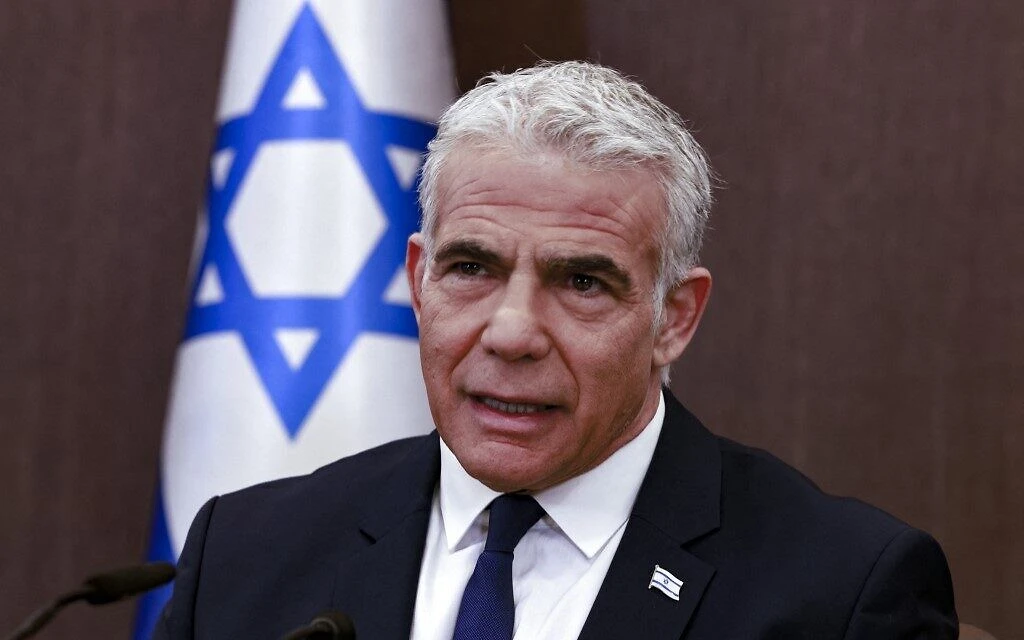Netanyahu vows to escalate Gaza offensive, enforce Trump’s displacement plan
 A portrait of Israel's Prime Minister Benjamin Netanyahu hangs on the sidewalk during an anti-government protest calling for action to secure the release of Israeli hostages, in front of the Israeli Defence Ministry in the coastal city of Tel Aviv on March 29, 2025. (AFP Photo)
A portrait of Israel's Prime Minister Benjamin Netanyahu hangs on the sidewalk during an anti-government protest calling for action to secure the release of Israeli hostages, in front of the Israeli Defence Ministry in the coastal city of Tel Aviv on March 29, 2025. (AFP Photo)
Israeli Prime Minister Benjamin Netanyahu on Sunday pledged to intensify military operations in the Gaza Strip and reaffirmed his commitment to implementing a controversial displacement plan backed by U.S. President Donald Trump.
Speaking at the opening of a Cabinet meeting, Netanyahu said military and political pressure is the only effective strategy for recovering Israeli hostages held by Hamas.
He dismissed calls for restraint, asserting that military action was “crushing Hamas’ capabilities” and preparing the ground for hostage releases.
He also confirmed that his government supports Trump’s ‘voluntary migration’ plan for Palestinians in Gaza, stating, “That is the plan, and we are ready to discuss it at any time.”
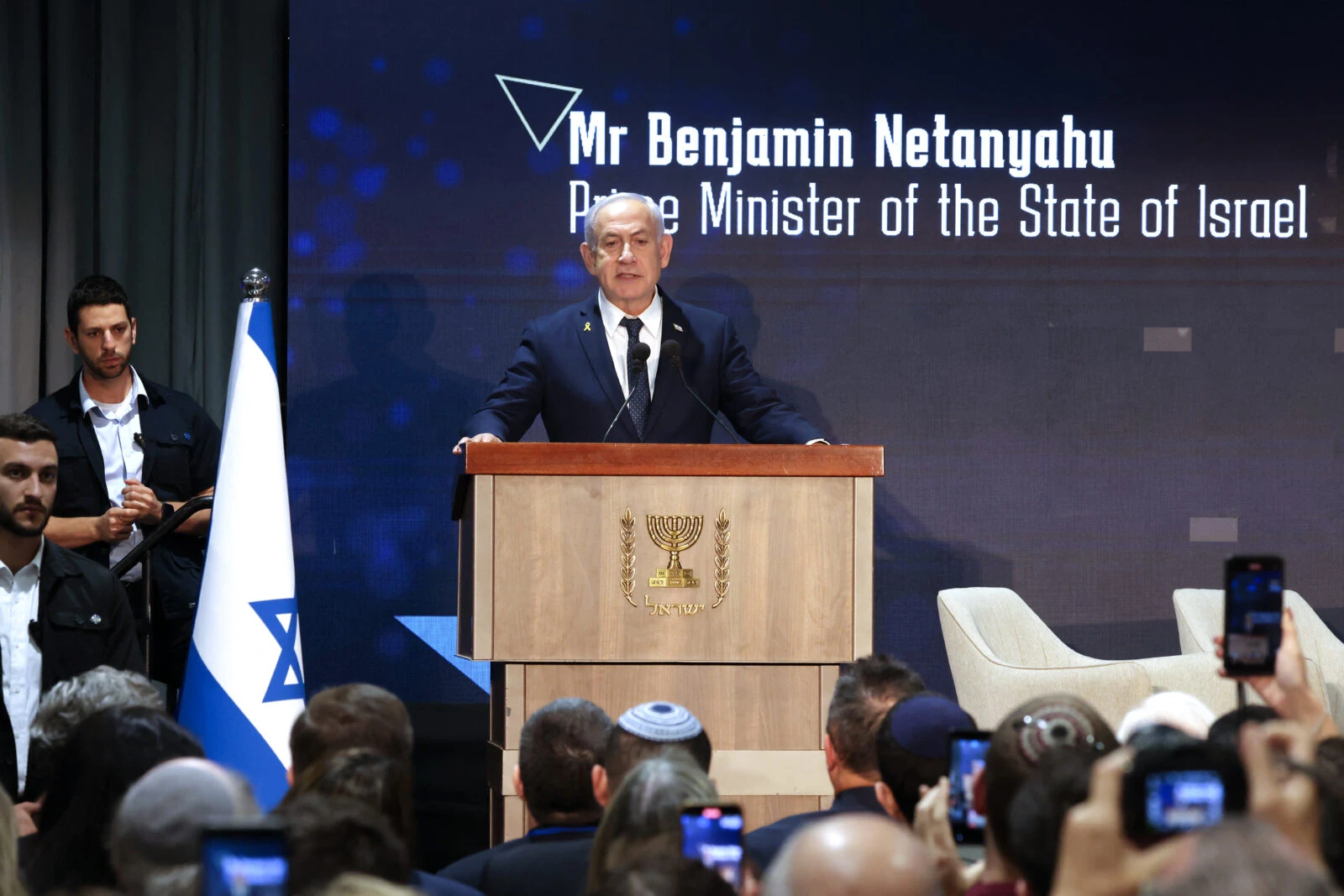
Trump’s Gaza plan and regional opposition
Trump originally proposed relocating Gaza’s 2.3 million residents to neighboring countries such as Egypt and Jordan and redeveloping the enclave as a U.S.-owned resort. Both nations, along with multiple Arab states and international organizations, have rejected the plan.
On March 4, Arab leaders adopted a $53 billion plan to rebuild Gaza without displacing its population. Israel and the U.S. opposed that initiative, continuing to promote Trump’s resettlement strategy instead.
However, Israeli Prime Minister Benjamin Netanyahu appears to be insistent on implementing Trump’s plan; he has reportedly tasked Israel’s foreign intelligence agency, the Mossad, to investigate potential countries willing to accept large numbers of Palestinians from the Gaza Strip.
According to a report from U.S. media outlet Axios, citing two Israeli officials and a former U.S. official, says that secret discussions have already occurred with countries in Africa, including Somalia and South Sudan, as well as Indonesia in East Asia.
Netanyahu reportedly tasked Mossad with this mission several weeks ago as part of Israel’s broader strategy concerning Gaza.
The report states that Israel is working to facilitate the removal of Palestinians from Gaza while continuing its military campaign in the enclave and issuing further evacuation orders.
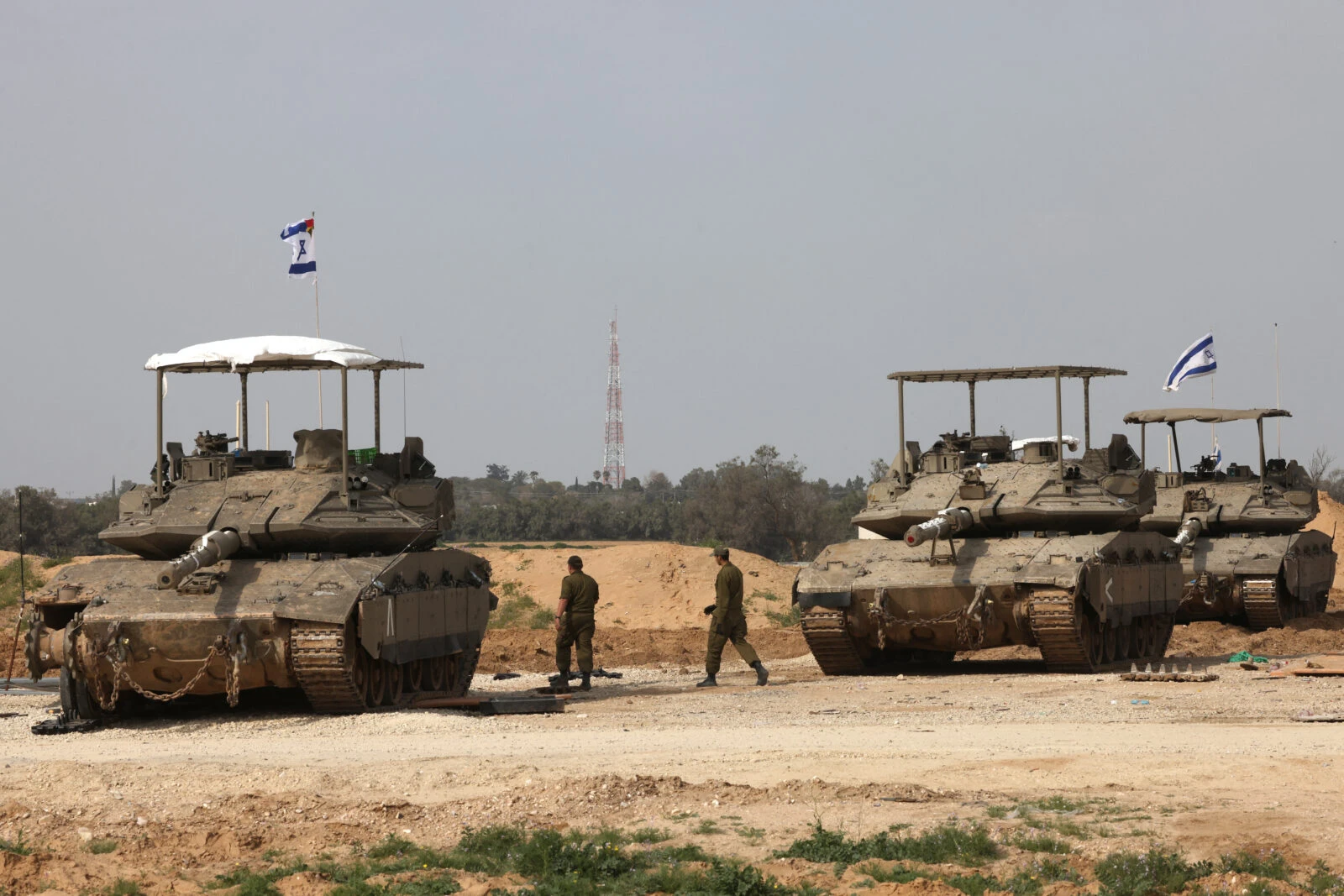
Gaza attacks resume after ceasefire collapse
Israeli forces resumed aerial attacks on Gaza on March 18, ending a ceasefire reached in January.
According to Gaza’s health authorities, more than 920 people were killed and over 2,000 injured in the renewed bombardment. Israeli officials stated the operations aim to increase pressure on Hamas to release hostages.
The Gaza Health Ministry reports more than 50,200 Palestinian deaths since October 2023, with tens of thousands more injured. Many casualties are women and children.
The United Nations has raised concerns over the scale of destruction and displacement.
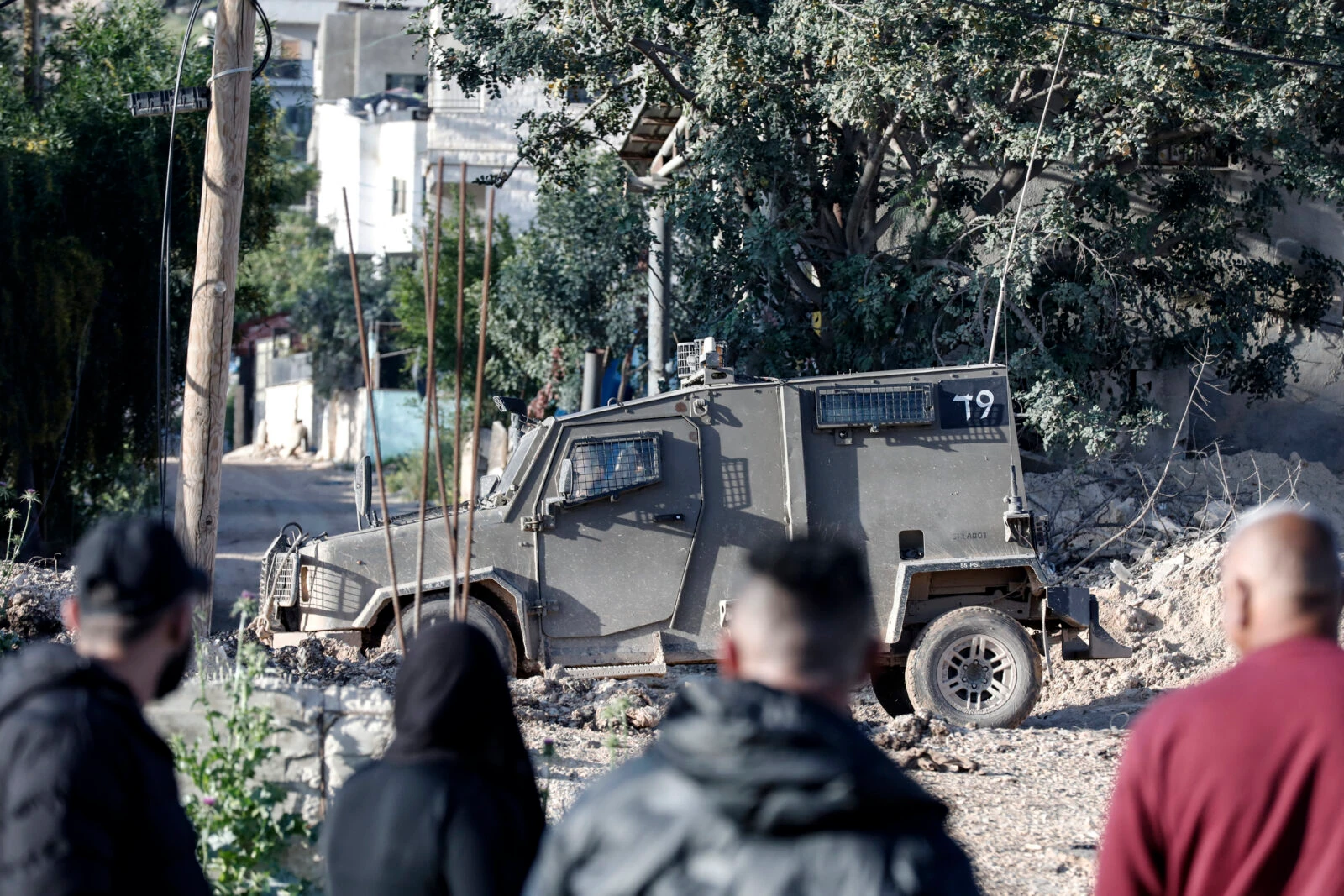
Displacement amid Eid celebrations
The latest airstrikes occurred during Eid al-Fitr, the Islamic holiday marking the end of Ramadan. Despite the ongoing violence, Palestinians in Gaza attempted to observe the holiday.
In northern Gaza’s Jabalia, resident Minnatallah Al-Far said, “We are here to celebrate the rituals of God amid the destruction and the sounds of cannons.”
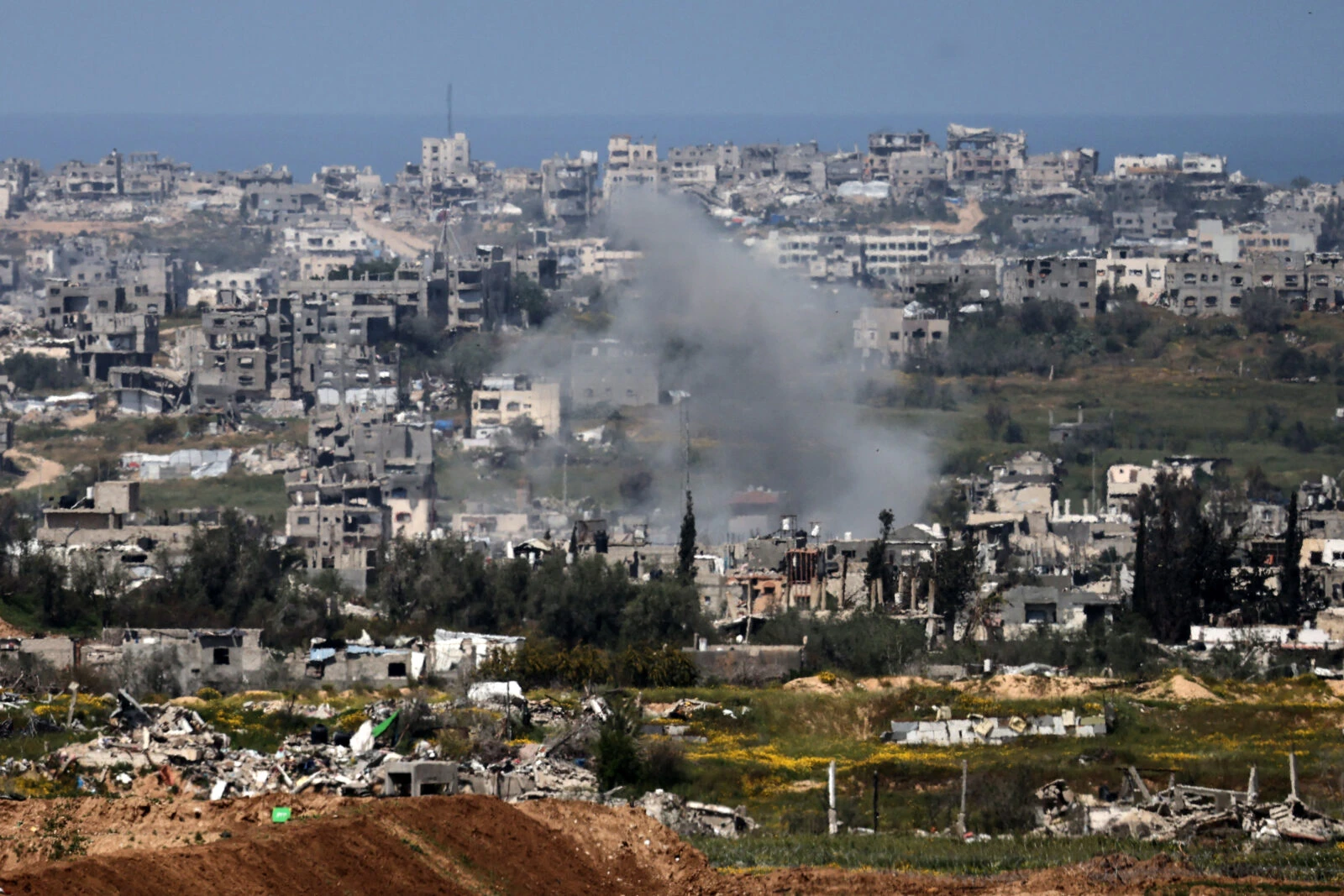
Israeli settlement expansion near East Jerusalem
In a separate development, Israel’s security cabinet approved a settlement road project in the occupied West Bank near East Jerusalem.
The road, part of a plan to expand the E1 settlement zone, would link Israeli settlements while isolating Palestinian communities.
The project includes a tunnel allowing limited Palestinian movement between al-Eizariya and al-Zaim, bypassing Israeli-controlled routes. Critics say the move effectively severs East Jerusalem from the West Bank, undermining prospects for a two-state solution.
Settlement officials and Israeli ministers welcomed the decision, with Defense Minister Israel Katz calling it a “historic decision” to enhance control over what he referred to as “Judea and Samaria.” which is the administrative term used by the Israel to refer to the entire West Bank, which is occupied by Israel.
